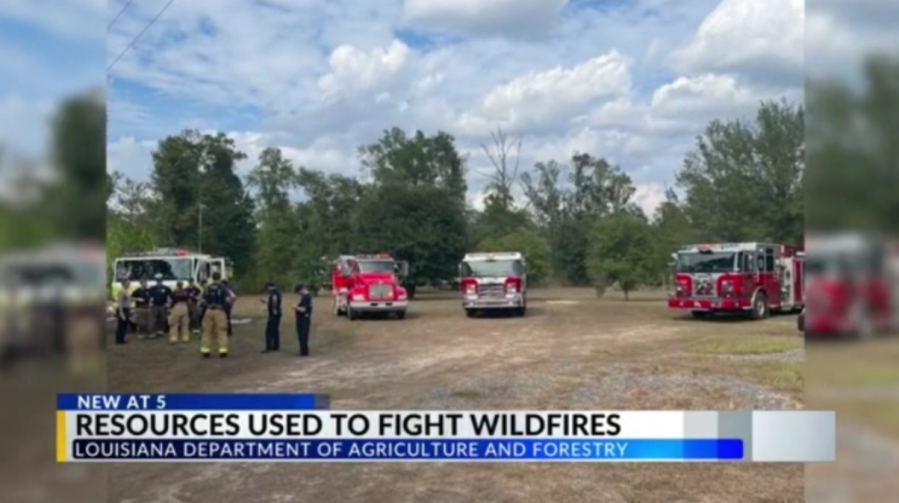Controversial Warrant Crucial In Arkansas Police Chief's Rape Conviction

Table of Contents
The Controversial Warrant and its Legality
The warrant authorizing the search of the Arkansas police chief's residence and vehicle is the central point of contention. Keywords surrounding this section include: warrant validity, probable cause, Fourth Amendment violations, search warrant, affidavit, evidence gathering, judicial oversight. The affidavit supporting the warrant application, submitted by the investigating officers, alleged probable cause based on witness testimony and circumstantial evidence. However, the defense argues that the affidavit lacked sufficient detail to establish probable cause, a fundamental requirement under the Fourth Amendment.
- Specificity of the Warrant: The warrant authorized the search for specific items believed to be related to the alleged rape, including clothing, DNA samples, and electronic devices. The exact wording of the warrant and its scope are now subject to intense scrutiny.
- Legal Arguments: The prosecution argues the warrant satisfied the probable cause requirement, citing the totality of the circumstances presented in the affidavit. The defense, however, contends that the affidavit was based on hearsay and speculation, not concrete evidence, thus violating the chief's Fourth Amendment protection against unreasonable searches and seizures.
- Fourth Amendment Violations?: The defense claims the warrant represents a clear violation of the Fourth Amendment, arguing the search was overly broad and lacked the necessary specificity. The admissibility of any evidence obtained during this search is directly challenged based on this argument.
- Challenges to the Warrant: The defense has formally challenged the warrant's validity, arguing for the suppression of all evidence obtained as a result of the allegedly illegal search. The success of these challenges could significantly impact the overall case.
The Role of DNA Evidence in the Conviction
The DNA evidence plays a critical role in the conviction. Keywords associated with this section include: DNA evidence, forensic science, chain of custody, admissibility of evidence, scientific validity, expert testimony. The prosecution presented DNA evidence allegedly linking the police chief to the crime scene. This evidence became a cornerstone of their case.
- Obtaining the DNA Evidence: The DNA evidence was obtained from items seized during the controversial search. The exact method of collection and its chain of custody are subjects of legal debate.
- Chain of Custody: Maintaining an unbroken chain of custody is crucial to ensuring the admissibility of DNA evidence. Any break in this chain could cast doubt on the validity of the evidence. The defense is closely scrutinizing the chain of custody to identify any potential flaws.
- Reliability and Validity: The defense may challenge the reliability and validity of the forensic testing, questioning the methodologies used and the qualifications of the experts who conducted the tests. The scientific validity of the DNA analysis itself is under examination.
- Expert Testimony: The admissibility and weight of the DNA evidence heavily depend on the expert testimony presented by both the prosecution and defense. The credibility of these experts and their interpretation of the test results are crucial to the case.
Implications for Law Enforcement and Due Process
This case has significant implications for law enforcement practices and due process rights. Relevant keywords here include: police procedure, due process rights, judicial review, legal precedent, criminal justice reform. The outcome of the legal challenges to the warrant will directly affect future police procedures in Arkansas and potentially nationwide.
- Impact on Police Procedures: The ruling on the warrant's validity will likely influence how police departments across the state and potentially nationwide approach obtaining and executing search warrants. It could lead to greater scrutiny of affidavit preparation and a greater emphasis on ensuring probable cause.
- Balance Between Law Enforcement and Individual Rights: This case highlights the ongoing tension between the need for effective law enforcement and the protection of fundamental due process rights guaranteed by the Constitution. The court’s decision will significantly impact the balance between these two competing interests.
- Potential for Legal Challenges: The outcome of this case will undoubtedly serve as a precedent for future legal challenges to similar cases involving contested search warrants and DNA evidence. Lawyers will closely examine the ruling for guidance.
- Criminal Justice Reform: The case reinforces the need for robust judicial oversight of law enforcement practices and ongoing discussions about criminal justice reform, particularly regarding search and seizure procedures and the use of forensic evidence.
Public Reaction and Media Coverage
Public reaction to the conviction and the controversial warrant has been mixed, with many expressing concern about the implications for due process and police accountability. Keywords include: public opinion, media scrutiny, social media, legal commentary, community impact.
- Public Opinion: Public opinion is divided, with some praising the conviction and others questioning the legality of the warrant and the fairness of the trial. The case has spurred debates on social media and in the wider community.
- Media Scrutiny: The media has played a significant role in disseminating information and shaping public perception of the case. Extensive coverage has detailed both sides of the legal arguments.
- Social Media Discussions: Social media has provided a platform for lively discussions and debates, reflecting a wide range of opinions on the case's implications.
- Community Impact: The conviction has had a considerable impact on the community, raising questions about trust in law enforcement and the administration of justice.
Conclusion
The Arkansas police chief's rape conviction, heavily reliant on a controversial warrant and DNA evidence, underscores the critical need for careful consideration of evidence admissibility and due process rights. The legality of the search warrant and the chain of custody surrounding the DNA evidence remain central to ongoing legal debate. This case highlights the ongoing tension between effective law enforcement and the preservation of fundamental individual rights. The ruling sets a significant legal precedent, impacting future cases involving similar circumstances.
Call to Action: The controversial warrant in the Arkansas police chief’s rape conviction highlights the critical need for continued scrutiny of law enforcement practices and a robust system of judicial review to ensure due process for all. Learn more about the Fourth Amendment and its implications for search warrants and evidence admissibility. Stay informed about this developing legal case and its ongoing impact on the legal landscape. Understand the importance of challenging potentially unlawful warrants and fighting for your rights.

Featured Posts
-
 Drought In South Australia The Growing Pressure From Kangaroos
May 29, 2025
Drought In South Australia The Growing Pressure From Kangaroos
May 29, 2025 -
 Crypto Bros Short Sell On Trump Coin Leads To White House Dinner
May 29, 2025
Crypto Bros Short Sell On Trump Coin Leads To White House Dinner
May 29, 2025 -
 La Wildfires And The Disturbing Reality Of Disaster Gambling
May 29, 2025
La Wildfires And The Disturbing Reality Of Disaster Gambling
May 29, 2025 -
 Joshlin Smith Trial Appollis Details Alleged Interrogation Torture
May 29, 2025
Joshlin Smith Trial Appollis Details Alleged Interrogation Torture
May 29, 2025 -
 Pocket Celestial Guardians New Pokemon Tcg Expansion And Event Details
May 29, 2025
Pocket Celestial Guardians New Pokemon Tcg Expansion And Event Details
May 29, 2025
